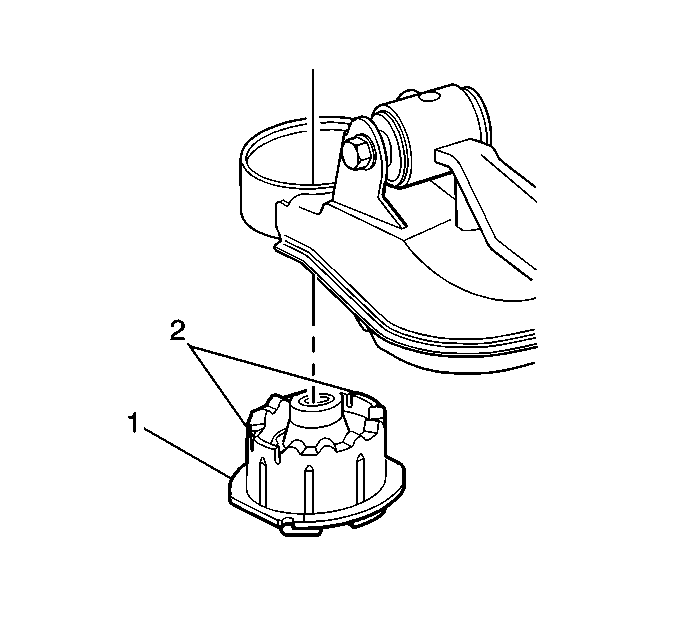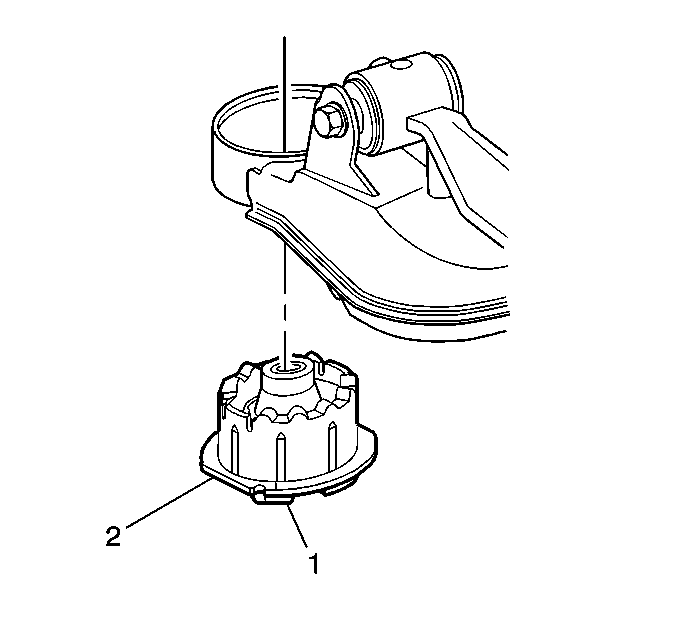Removal Procedure
- Raise the vehicle. Refer to Lifting and Jacking the Vehicle in General Information.
- Remove the wheels and the tires. Refer to Tire and Wheel Removal and Installation in Tires and Wheels.
- Remove the exhaust system.
- Support the forward end of the rear suspension support assembly with a jack stand.
- Remove the brackets from the body at the support assembly forward mounts (1).
- Remove the 2 bolts securing the front of the support assembly to the body of the vehicle.
- Lower the front end of the support assembly enough for mount removal.
- Bend the tabs on the inboard mount and tap the mount downward and out of the support assembly. Use a punch.

Installation Procedure
- Tap the mount into the support assembly, ensuring that the flat is outboard (2) and the notch (1) is rearward upon installation.
- Bend the tabs outboard with a large pair of channel lock pliers.
- Raise the support assembly to the body of the vehicle.
- Install the 2 bolts securing the front of the support assembly to the vehicle body.
- Install the brackets to the body at the support assembly forward mounts.
- Install the exhaust system.
- Install the wheels and the tires. Refer to Tire and Wheel Removal and Installation in Tires and Wheels.
- Lower the vehicle.

Notice: Use the correct fastener in the correct location. Replacement fasteners must be the correct part number for that application. Fasteners requiring replacement or fasteners requiring the use of thread locking compound or sealant are identified in the service procedure. Do not use paints, lubricants, or corrosion inhibitors on fasteners or fastener joint surfaces unless specified. These coatings affect fastener torque and joint clamping force and may damage the fastener. Use the correct tightening sequence and specifications when installing fasteners in order to avoid damage to parts and systems.
Tighten
Tighten the bolts to 191 N·m (141 lb ft).
Tighten
Tighten the bolts to 86 N·m (63 lb ft).
Tighten
Tighten the wheel nuts to 140 N·m (100 lb ft).
